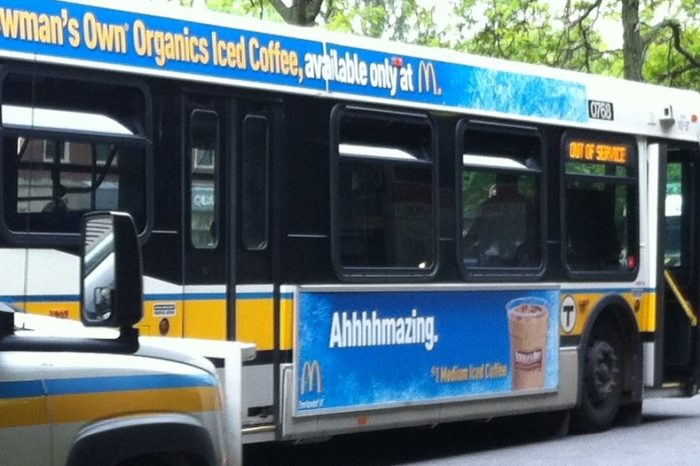The MBTA’s Out-of-Control Bus Maintenance Costs
Pioneer Institute Study Highlights Overspending on MBTA Bus Maintenance
A new study from Pioneer Research Director and former Massachusetts Inspector General Greg Sullivan finds that the MBTA spends more than twice as much maintaining its buses than comparable transit agencies do, and that simply running its bus maintenance operation as efficiently as other agencies would save at least $250 million over six years.
The MBTA’s Out-of-Control Bus Maintenance Costs
The policy brief, “The MBTA’s Out-of-Control Bus Maintenance Costs,” coincides with deliberations by the Massachusetts Senate and House of Representatives over an expected $500-800 million tax increase for transportation funding. The state currently has a half-billion dollar annual transportation operating deficit.
The report calls for closer scrutiny of the MBTA’s bus repair and maintenance program, concluding that bus maintenance costs are so high because the T is overstaffed compared to comparable transit agencies and its employees are overpaid. For example:
• The average 2012 wage for a T bus maintenance employee was $78,550 including overtime according to the Boston Herald’s “Your Tax Dollars at Work” transparency website. When fringe benefits are included, the average cost per full-time employee was $111,634.
• The top ten highest paid machinists (mechanics) averaged $134,554; highest was $151,363.
• The top ten highest paid painters averaged $86,486; highest was $101,199.
• The top ten highest paid fuelers averaged $67,326; highest was $79,986.
• The forepersons at the MBTA’s Charlestown and Fellsway maintenance and repair facilities earned $194,337 and $166,297 respectively in 2012.
• By comparison, Governor Patrick earned $139,832.42 and Transportation Secretary Davey earned $152,076.94.
This policy paper compares the MBTA’s bus maintenance costs to those of other bus transit agencies and considers the causes of the T’s inordinately high bus maintenance spending. Considering that the MBTA spent a whopping $832 million on bus maintenance between 2000 and 2011, any significant improvement in cost-effectiveness in this area is certain to translate into large savings.
The report reviews key problems with the MBTA’s current bus maintenance program, including relative cost per mile, excessive staffing and compensation levels, and a restrictive anti-privatization state law that drives up MBTA costs by effectively prohibiting it from competitively procuring less expensive bus repair services.
- $111,634 – Average cost per full-time bus maintenance employee (including overtime & benefits)
- MBTA ranks 2nd out of US’s 29 largest transit systems in number of full-time maintenance personnel/bus mile traveled (63% higher than average)
- MBTA ranks 4th out of US’s 344 bus transit systems in maintenance cost per mile traveled (94% higher than average)
Pioneer also offers important recommendations for reform that the state Legislature, Governor, and MBTA management should consider.
The T’s director of procurement has also told the MBTA Board of Directors that performing major bus overhauls in-house costs 50% more than outsourcing the work, but the outsourcing option is largely foreclosed due to the so-called Pacheco law, which makes it almost impossible to open any service performed by state employees to private competition.
Pioneer Institute has already weighed in on the need for more revenue to fund the commonwealth’s transportation system, and on the commuter rail’s high labor expenses. But as state leaders contemplate hundreds of millions of dollars in new taxes to fund transportation, they owe it to taxpayers to trim unnecessary spending.
###
Pioneer Institute is an independent, non-partisan, privately funded research organization that seeks to improve the quality of life in Massachusetts through civic discourse and intellectually rigorous, data-driven public policy solutions based on free market principles, individual liberty and responsibility, and the ideal of effective, limited and accountable government.



